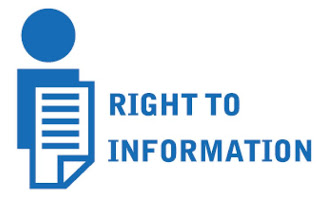
Redefining the “Public Authority” under Right to Information Act - Need of the hour
Right to Information (RTI) Act completed more than six years of its existence. Lacs of RTI application filed and information sought. Thousand of appeals and complaints filed for not giving information, giving partly information, etc. under the present act Many application rejected on the ground that the organization is not a public authority. It does not fall in the definition of public authority as stipulated under the RTI Act.
As per the Section 2 (h) of RTI Act, 2005 public authority means any authority or body or institutions of self-government established or constituted by or under Constitutions, law made by parliament, state legislature, by notification issued or order made by the appropriate government and also includes any body owned, controlled or substantially financed including NGOs.
For getting the information under RTI, it is the prerequisite to see that the particular organization is a public authority or not. If an applicant does not get information from that organization he will have to prove that organization is a public authority. There are the cases in which some organization refused to provide information on the ground that their organizations are not public authority.
In the case of The Board of Management of the Bombay Properties of the Indian Institute Science though its Secretary v/s. The Central Information Commissioner, The Information Commissioner, Kayumars F Mehta and The Union of India (Writ Petition 1887 of 2010, Bombay High Court, Decided on 11th October, 2010), writ petition was filed in Bombay high court for the determination of Board of Management of the Bombay Properties of IISc as the public authority, finally going through the substance of the case it was decided that It is the Public Authority under RTI Act.
As of now there are many organizations which are out of the ambit of public authority. Unless and until a person approaches the High Judiciary, this determination of organization as a public authority is not resolved.
Looking at the some other cases on same aspects. In January, 2010, Jayshree Nagar, resident of Paldi, Ahmedabad filed a RTI Application to Torrent Power and sought the information on power failures, shutdowns, interruptions at Rajnagar complex, Narayan nagar and Paldi Areas. Company replied that information can not be shared as they are not public authority as defined in Section 2(h) of RTI Act. Torrent Power is the only electricity distributor in Ahmedabad, Gandhinagar and Surat. Some activist opined that one can seek these informations from Gujarat Electricity Regulatory Authority (GERA) which is the regulator of Power Company in Gujarat. But I do not think this type of practice will help to fulfill the objectives of the RTI Act. Speaking on this matter then Central Information Commissioner Wajahat Habibullah said that according to me Torrent Power should provide the information sought under the RTI Application. But to cover Torrent Power under the RTI act, some conditions have to be fulfilled like government’s control, stakes, finance in the said company.
In the very interesting case of Reliance Infrastructure, Maharashtra State Information Commission (SIC) decided that Reliance Infra is involved in the providing “essential service” and therefore it comes under the definition of public authority stipulated under RTI Act. Anil Galgali, RTI activist filed a complaint to SIC as he did not get the details of electricity meter connection in the Mumbai city. Company said that it is the private firm and not covered under the RTI Act. In fact looking at the decision of SIC, it is clear that word “essential service” is not included or defined in the section 2(h) of RTI Act. SIC went beyond the scope of definition and decided accordingly. From my view point, apparently SIC erred in deciding the case but it is very good decision in the larger public interest. In August 2011 against the order of SIC, Reliance Infra approached the Bombay High Court for taking stay against the order of SIC. Finally in October 2011, Bombay HC granted the stay in favour of Reliance Infra which is totally against the larger public interest. Legally High Court is right in granting the stay as SIC went beyond the scope of definition of Public Authority stipulated under the act.
In the age of globalization, privatization, lot of private companies are granted the green signal for doing business and consequently they cover significant area of business in the given territory. Imagine the scenario, where Transporation, Water, Electricity, Gas etc. the essential services are to be provided by private firms. If these companies are failing to provide better service and we want some information regarding their working under RTI act,
Whom we will approach?. Companies will surely take the shelter under the umbrella by saying that they are the private companies and do not fall under the definition of public authority. In this situation people will be helpless in absence of any information. We can approach the government which granted licenses to run the business of private companies providing essential services, but I do not think we will be able to get the full and complete information. Ultimately it will defeat the objectives of the act. Bihar’s chief minister Nitish Kumar speaking at the Sixth Annual Convention of the Central Information Commission in October, 2011, emphasized that “Corporate Sector and Public Partner Partnership (PPP) projects be brought under RTI Act”
Under the section 2(h)(d) of RTI Act appropriate government can include any organization under the RTI by issuing any notification or passing an order. It is not seen that think government is using this tool for inclusion of organization under RTI in efficient manner. Cases are decided on the bases of creation of organization by government, control, funding of organization etc.
We hope looking at the present conflict, appropriate government will redefine the public authority and include more organization under the ambit of RTI Act.
